Coptic Orthodox
Author: H. H. Pope Shenouda III.
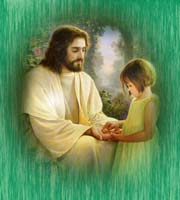 INTRODUCTION
INTRODUCTION
Many write for adults and few are those who write for children. Also, many occupy themselves talking with adults, but rare are those who love to talk to children. So, sometimes children feel they are not the core of attention and respect of adults, and accordingly they try to draw their attention by many ways, perhaps by outcry or stubbornness or (naughtiness).
In this book, we need to talk about the child, his mentality and how to relate to him and gain his love, and to serve him spiritually, socially and culturally. Because the child is the first cell of the society and the church, if we gain him, we win an entire generation, and if we lose him we lose the future of the generation we live in, and consequent loss of the other generations.
I personally love children and love to joke, play, talk and make friends with them. In childhood I find innocence, truth and openness, as well as the quick response which we lack in adults. This book is not the outcome of a study of books of psychology and education, but the result of personal experiences with the
The Child Saint Martyr
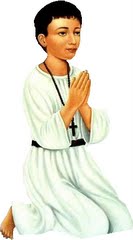 Abanoub was only twelve years old when he was martyred by the Roman ruler. On July 31 our Church celebrates his death, as the day of his birth into eternal life.
Abanoub was only twelve years old when he was martyred by the Roman ruler. On July 31 our Church celebrates his death, as the day of his birth into eternal life.
Abanoub's relics, as well as the relics of many Christians who died with him, are still preserved in St. Virgin Mary and St. Abanoub church in Samanoud. It is also said that the Holy Family visited that place during their Flight into Egypt. The church still contains the well from which The Lord Jesus, St. Mary, and St. Joseph drank. Numerous apparitions and miracles do occur in that church until this very day. Abanoub was born in a town called Nehisa in the Nile Delta. He was the only son of good Christian parents who died when he was a young child. At age twelve Abanoub entered the church to hear the priest asking the congregation to remain faithful during the persecutions provoked by Diocletian, the Roman emperor.
Abanoub received the Holy Sacraments, then he
By His Holiness Pope Shenouda III
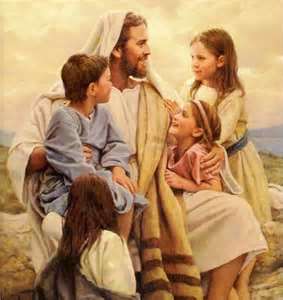 God's children should be strong because they were created in His image and likeness (Gn 1: 26); and God is powerful. We say about Him "Holy is the Lord God Almighty"; therefore, they should be strong like Him.
God's children should be strong because they were created in His image and likeness (Gn 1: 26); and God is powerful. We say about Him "Holy is the Lord God Almighty"; therefore, they should be strong like Him.
In the book of Numbers, when God ordered Moses to take a census of the people, this was restricted to young men who can go to war (Nu 1: 3). When the Song of Solomon talks about the men around King Solomon's throne, it describes them as valiant men; "They all hold swords, Being expert in war. Every man has his sword on his thigh, Because of fear in the night." (Sgs 3: 8)
A Friend For Eternity...
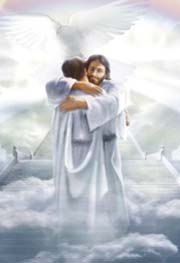 This is the story of a famous leader named Joshua who had 80 disciples. All of them became good leaders.
This is the story of a famous leader named Joshua who had 80 disciples. All of them became good leaders.
One day, Joshua lifted up his heart and asked God what He had prepared for him in eternity. In a dream, Joshua heard a voice telling him, "You and Neres will be with me in Paradise and both of you will receive the same reward."
Joshua woke up upset, wondering how he could dedicate his whole life to the ministry of God and still get the same reward as a
By: GEORGE YOUSSEF
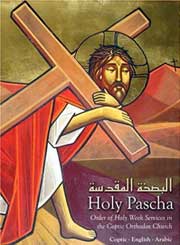 “The Holy Week of Pascha is central in the church life. It is a celebration of God the Heavenly Father’s love. “For God so loved the world that He gave His only begotten Son, that whoever believes in Him should not perish but have everlasting life” (John 3:16). It is also a living remembrance of our Lord Jesus Christ, “who through the eternal Spirit offered Himself without spot to God” (Hebrews 9:14).
“The Holy Week of Pascha is central in the church life. It is a celebration of God the Heavenly Father’s love. “For God so loved the world that He gave His only begotten Son, that whoever believes in Him should not perish but have everlasting life” (John 3:16). It is also a living remembrance of our Lord Jesus Christ, “who through the eternal Spirit offered Himself without spot to God” (Hebrews 9:14).
-Holy Pascha: Order of Holy Week Services in the Coptic Orthodox Church
The word “Pascha” translates to “Passover” which refers to the angel of death that passed over the houses of the Hebrews. These houses were sprinkled with the blood of the Passover lamb, symbolizing the sacrifice of the Cross. Pascha is the name given to the period between Palm Sunday and Good Friday. The entire Holy


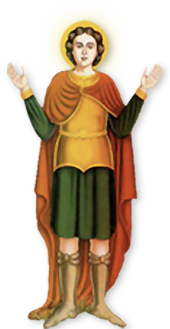





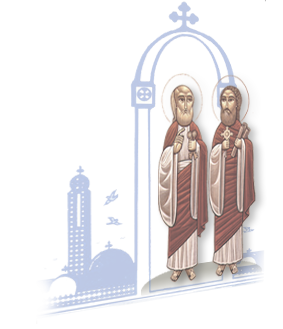



 Subscribe to RSS Feed
Subscribe to RSS Feed